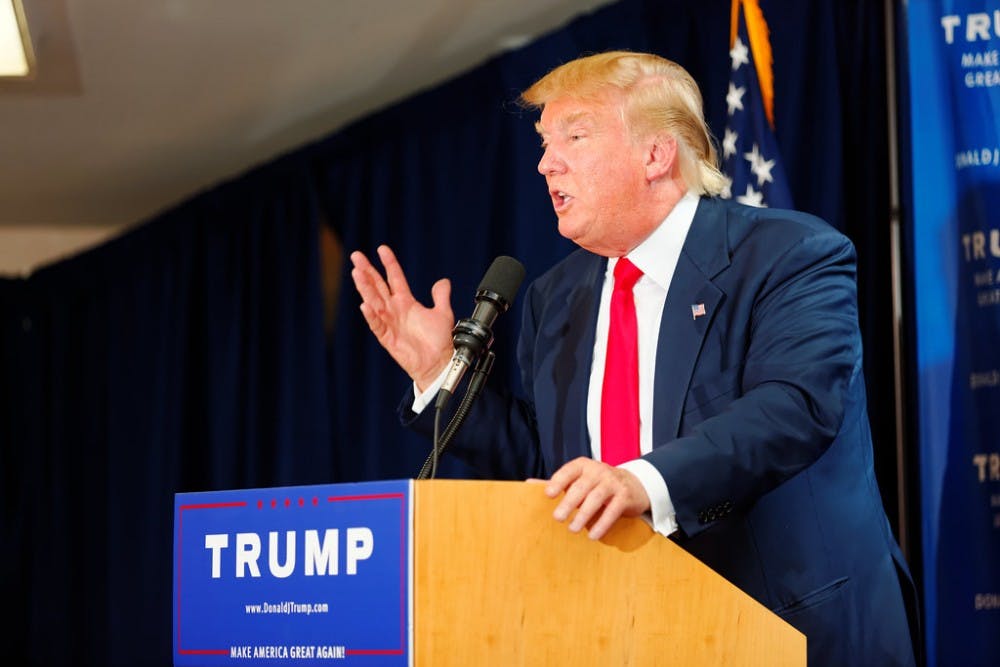Nancy Pelosi, the speaker of the House of Representatives, announced on Tuesday the House began a formal impeachment inquiry against President Donald Trump.
The inquiry came after Trump allegedly asked a foreign nation to provide information on a political opponent. Trump is accused of “pressuring” Ukrainian President Volodymyr Zelensky to investigate and release information on Democratic presidential front-runner and former Vice President Joe Biden.
But some UB community members don’t think his removal is likely.
The House’s impeachment inquiry is the first step in the complex process of impeachment –– the set of formal charges against a public official to be voted on.
“An impeachment inquiry gives the committees of jurisdiction more power to investigate the matters at hand,” said political science professor Shawn Donahue. “One of the purposes of starting an inquiry is that it would give the committee more power to gather evidence. These may lead to formal articles of impeachment later, which would be reported out of the House Judiciary Committee.”
On Thursday, an anonymous whistleblower revealed a complaint from Aug. 12. The whistleblower said they received information that Trump was “pressuring a foreign country to investigate one of the President’s main domestic political rivals.”
Donahue said the process in the next few weeks is dependent on if the committee has the required evidence to impeach the president or if the Trump administration will attempt to “stonewall the investigation.”
“If the Trump administration stonewalls the investigation, that could be an article of impeachment in itself,” Donahue said. “An important thing to watch is to see if any Republicans start to peel off and back an impeachment inquiry.”
Alexander Smith, a junior communication major, doesn’t think Trump’s actions warrant impeachment.
“Personally, I don’t believe he will be impeached,” Smith said. “Albeit, I don’t think he is doing amazing things in office, but he is not causing enough issues to face impeachment.”
Political science professor Jacob Neiheisel says there is little in the constitution regarding impeachment, so there is a lot of uncertainty with what may happen.
“So much of the rules for impeachment, or the process for impeachment, is based on tradition and the few instances before that we have had of this,” Neiheisel said.
Neiheisel said he believes media coverage, the mention of Biden’s name and potential impeachment proceedings may have a “latent effect” on his presidential campaign.
Neiheisel thinks much more investigation and evidence is required to make an educated political assessment, however, he said he doesn’t believe impeachment is likely.
Neiheisel said he doesn’t think the Senate Majority Leader Mitch McConnell will hold a trial if articles of impeachment are brought against Trump.
Neiheisel compared this to when McConnell refused to hold a Senate confirmation hearing when former President Barack Obama tried to appoint Merrick Garland to the Supreme Court in March 2016.
As a result of McConnell’s inaction, the Supreme Court vacancy was left open until Trump assumed office, enabling him to appoint and confirm, Justice Brett Kavanaugh.
Judymae Jolibois, a sophomore marketing major, said she thinks the impeachment inquiry is “about time” and “long overdue.”
“It shouldn’t have taken this long because as president you should represent the people,” Jolibois said. “But he’s been representing a certain demographic that’s not the entire population of America.”
According to Neiheisel, public opinion is an essential component in impeachment and, currently, the majority of Americans “do not have the stomach” to endure the impeachment process.
“I am guessing that any matter of impeachment will take us very close to the 2020 election anyways, and [McConnell] will likely say, ‘Well, this is a matter for the people to decide, and if they feel that [Trump] should not return to office, then we have a mechanism for that, and that is the election,’” Neiheisel said.
The news desk can be reached at news@ubspectrum.com.
CORRECTION: A former version of this article stated that community members didn't believe impeachment was likely. These community members didn't believe "removal" was likely.





